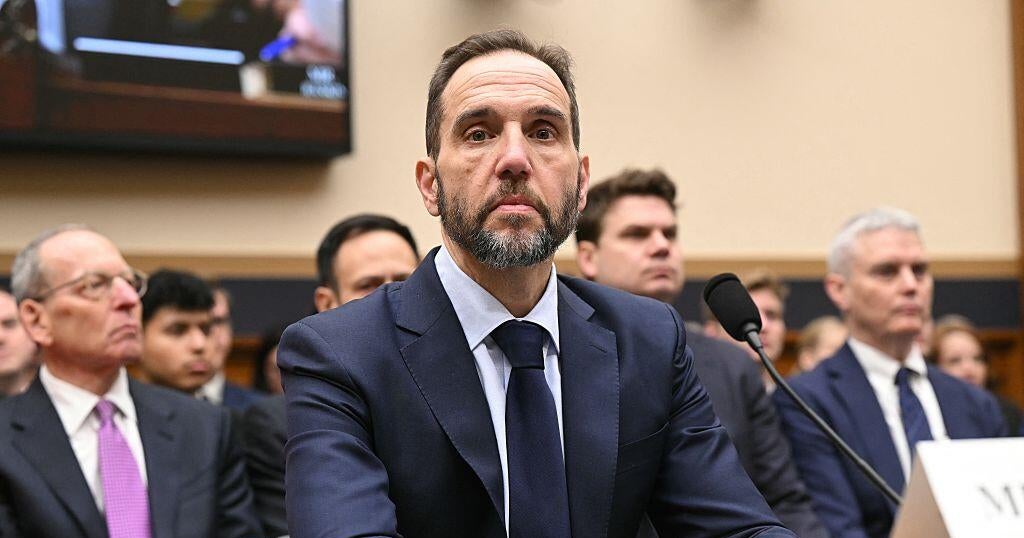Elizabeth Warren introduces bill to curb defense lobbying
Whether Elizabeth Warren is addressing the problems of income inequality, climate change or opioid addiction, she's usually targeting a common foe: the lobbyists. Thursday morning, the presidential candidate and Massachusetts Democratic senator is introducing a bill to limit their influence in national security interests, to "slam shut the revolving door between giant contractors and the Pentagon."
The Department of Defense spent over $300 billion on federal contracts in 2017, and President Trump last year signed a new spending bill that gave the Pentagon an additional $160 billion over two years. Warren says that's money wasted, handed over to corporations that have former senior government staffers in their corner -- paying them to serve on their boards or as consultants or lobbyists.
"If more money for the Pentagon could solve our security challenges, we would have solved them by now," Warren wrote in a Medium post.
The Massachusetts senator pointed to a watchdog's report that laid out the relationship between the between the government and corporations. Lobbying is a lucrative career for former government staffers. A former senior legislative staffer, for example, might double his salary overnight by taking a job lobbying for any number of industries. According to the Project on Government Oversight, the top 20 defense contractors in 2016 hired over 600 former government staffers -- culled from the top levels of government and the military, from the halls of Congress -- including former members and top legislative staff -- to serve as lobbyists, board members or senior executives.
"We have to call this what it is: corruption, plain and simple," Warren said.
The bill, co-sponsored by Rep. Jackie Speier of California, would ban defense contractors from hiring senior officials directly from the Defense Department and extend to four years the ban on former generals lobbying the Pentagon.
On the flip side, Warren wants to prevent corporate executives with potential conflicts of interest, like President Trump's Defense Secretary nominee Patrick Shanahan, a former top Boeing executive, from holding high-level governmental positions. Under her plan, former contractors who join the government would be disqualified from working on any issue that could help or hurt their former employer for four years.
For those working in the Defense Department, Warren's proposal would ban ownership of stock in defense contractors. She said that's a "no-brainer." It would also limit foreign governments' hirings of U.S. national security officials.
Warren wants transparency in lobbying, too. She says defense contractors should be required to reveal "the true scope of their lobbying activities," including, "who they're meeting with at the DOD, what they're lobbying about, and what (unclassified) information they're sharing." Also, private defense contractors should be beholden to open records laws, she said.
If the U.S. wants to show its gratitude for citizens in the armed services, Warren wrote, "We can start by making sure that national security decisions are driven only by what best keeps Americans safe."



